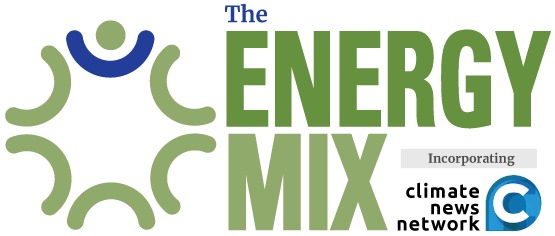Biden-Trump Transition Highlights Differences on Climate and Energy, Tariffs and International Relations
Climate change and energy are key themes underlying the U.S. presidential transition that will transfer power from sitting President Joe Biden to President-elect Donald Trump.
While the incoming president has said the current administration is making the transition as difficult as possible, Trump’s chief of staff Susie Wiles described the process as going well and said her counterpart has been helpful and professional, in an interview with Axios.
Among Trump’s complaints are Biden’s efforts to continue pushing his own priorities which, at least outwardly, clash with those of the president-elect. For instance, early this week Biden ordered a permanent ban on offshore oil and gas drilling in large swaths of federal waters.
Trump has responded vehemently alongside the oil and gas industry. Independent Petroleum Association of America (IPAA) Offshore Committee Chairman Ron Neal issued a press release calling Biden’s move a “major attack on the oil and natural gas industry” that “severely limits potential for exploration and development in new areas, therefore choking the long-term survivability of the industry.”
The president-elect promised to “un-ban” offshore drilling when he returns to office, even though drilling in those areas was a low priority for oil and gas companies and, in some places, had already been subject to a temporary ban by Trump himself. Previous court rulings have shown that Trump would need an act of Congress to reverse Biden’s latest decision, reports the New York Times.
At the same time, Trump has maintained his long-standing dislike of the wind-power industry, and stating that “no new windmills” will be built while he is in office, the Times says. Wind developers are showing discouragement about new investments, and Heatmap reports that at least one planned wind project has been put on pause as a result of Trump’s re-election.
25% Tariffs and ‘51st State’ Threat Provoke Responses
In other appearances, Trump has drawn attention for his startling statements on U.S. international relationships. His plans to impose 25% tariffs on all imports from Mexico and Canada raised notable concern in those two countries, both of which have extensive trade with the U.S. On Jan. 9, Prime Minister Justin Trudeau appeared on CNN’s “The Lead with Jake Tapper” to strike back, saying, “Everything the American consumers buy from Canada is suddenly going to get a lot more expensive if he moves forward on these tariffs.”
CBC News reports that a list of U.S. exports that could be subject to possible retaliatory tariffs is circulating among senior officials in Ottawa. And the Toronto Star writes of plans to soon release details of Canada’s response after Trump spoke of using “economic force” to annex Canada as a “51st state.” The Star quotes Canada’s International Trade Minister Mary Ng saying the threat is no longer being treated as a joke.
“We are taking it seriously, and we will respond seriously as well,” Ng said. “We have to be concerned when tariffs and punishing tariffs are going to hurt the Canadian economy.”
Canadian politicians like Ontario Premier Doug Ford have doubled down on what Trump’s 25% tariff threat could mean for Canadian energy exports to the U.S., though federal Conservative leader Pierre Poilievre—who stands a solid chance of being Canada’s next prime minister—says he could increase Canadian exports and strike a “great deal” with Trump, writes Bloomberg.
Trump Wants Panama Canal, Greenland
Trump has also announced interest in retaking U.S. control of the Panama Canal and buying Greenland, and climate change may underlie each of those suggestions. For Panama, Trump’s concerns center on rising prices for transiting the canal that he says are unfairly high for the U.S. But news reports dating back as far as August 2023 indicate that prices have risen and shipping traffic has jammed because of low water levels linked to changing weather patterns. Greenland could be attracting his interest because melting ice sheets could make uncover new reserves of oil, as well as critical minerals that are necessary for many clean energy technologies, writes The Conversation.
Trump is also threatening to undercut the U.S. role in international climate policy, beginning with his promise to withdraw from the Paris Agreement—which major oil and gas companies have urged him not to do, reports Inside Climate News.
Also on the table is a promise to undo Biden’s earlier pause on liquefied natural gas (LNG) export licences that delayed some LNG projects. Trump’s advisors are cautioning him to take his time to protect new projects from “protracted legal battles,” says Reuters.
Unclear Future for Climate Finance
Looking ahead, the future for climate finance over the next few years is not clear, and billions of dollars in conditional loans to clean tech businesses through the U.S. Energy Department’s Loan Programs Office—which Trump tried to shut down in his first term—are at risk if commitments aren’t closed before Trump takes office, reports Bloomberg.
Amidst the uncertainty, two climate tech investors, in an interview with Heatmap, had differing predictions for the clean tech industry.
Scott Jacobs, co-founder and CEO of infrastructure investment firm Generate Capital, expressed concern that investors are pulling back, which may undercut companies—though he positioned that as an outcome of various headwinds that have developed over the past years, not the election results.
But Andrew Beebe, managing director of venture capital firm Obvious Ventures, was optimistic about how Trump’s alliance with Tesla CEO Elon Musk—and their joint support for cutting red tape to deploy more energy projects—could help the industry move forward.
“I think that we will see a meaningful number of Republicans in the Senate and the House start to champion climate solutions and sort of attempt to make climate resiliency and fighting climate change more of a Republican issue,” Beebe said.
Cover photo: Damien Connor/YouTube





